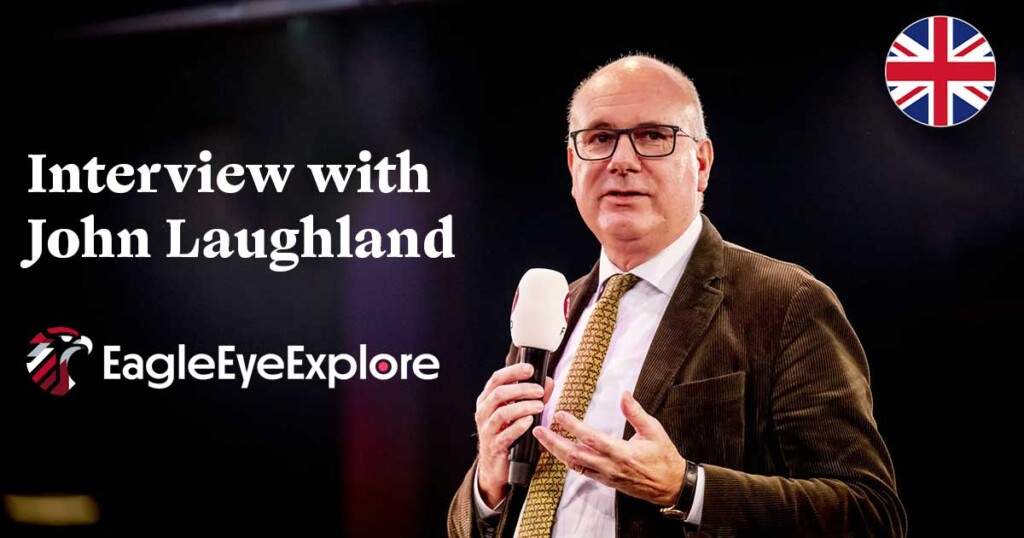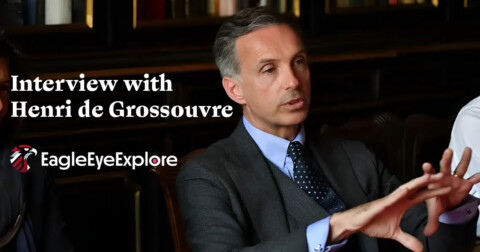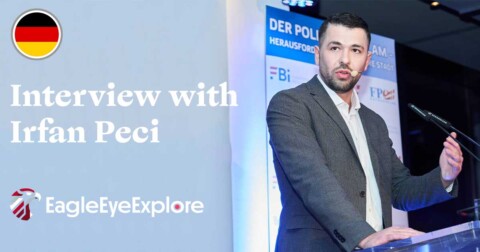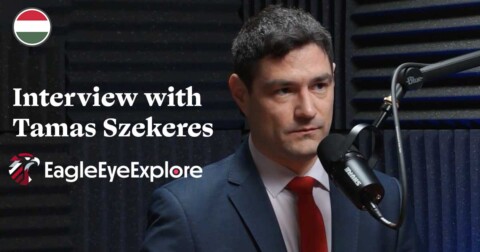John Laughland is a British political analyst, author, and lecturer specializing in international relations, European affairs, and political philosophy. Currently affiliated with the Dutch political party Forum for Democracy (FvD), he plays a key role in FvD International, the party’s global network that promotes anti-globalist values and seeks to unite like-minded intellectuals, political movements, and civil society organizations.
Laughland holds academic credentials in history and political science and is a lecturer at the Catholic Institute of the Vendée (ICES) in Western France, where he teaches political theory and international relations. Previously, he served as Director of Studies at the Institute of Democracy and Cooperation in Paris (2008–2018), and earlier as Director of the European Foundation, a prominent Eurosceptic think tank in London.
A prolific writer, he has authored several books and contributed articles to leading outlets such as The Spectator, The Guardian, The Wall Street Journal, National Review, The American Conservative… Known for his critical stance on globalism, transnational institutions, and liberal hegemony, Laughland advocates for national sovereignty, cultural identity, and multipolar international cooperation.
Mr. Laughland, why are EU elites so obsessed with provoking confrontation with Russia, in defiance of basic geopolitical logic, economic necessity, and common sense? What explains this dangerous ideological impulse? Are EU leaders trapped in an ideological bubble?
Well, you’ve essentially answered your own question. Yes, the EU elites are indeed trapped in an ideological — or perhaps more accurately, emotional — bubble. In fact, the line between ideology and emotion is often very thin. Ideology, at its core, is about power; it’s an instrument of control, not a product of reason. In that sense, ideology stands in opposition to reason, just as unbridled emotion does.
So when it comes to the EU’s policy toward Russia, we are not witnessing a rational or interest-based strategy. It is, quite plainly, irrational. And this irrationality doesn’t just apply to Russia. It’s also visible in how Western institutions relate to countries like Iran or China.
What I find striking when listening to voices from Iran, China, or Russia is that they speak the language of interest, pragmatism, negotiation — in short, common sense. These countries look at the West, particularly the EU and the U.S., with bewilderment. They simply cannot comprehend the performative emotionalism and adolescent behavior they see coming from Western policymakers. It doesn’t correspond to the reality on the ground — neither theirs, nor the West’s.
We in the West are now trapped in a system of governance that is increasingly ideological, increasingly detached from reality. And that is dangerous. But unfortunately, this is not new, especially for Eastern Europe. Many Eastern European countries endured decades of ideological rule under Marxism — systems that operated in blatant contradiction to national interest. What we’re experiencing now is, in some ways, a redux of that same historical error.
Recently, you’ve advanced the provocative idea that this confrontation with Russia might actually be a pretext for targeting conservative forces within Europe itself. That the real war is internal, and Russia is just the excuse. Could you elaborate on that?
Yes, this is more an observation than a theory, but a valuable one nonetheless. Russia has effectively become a moniker — a pretext — for persecuting conservatives. It’s been transformed into the ultimate bogeyman. And so, anyone who dissents from the prevailing orthodoxy — whether on foreign policy, EU integration, or social issues like gender ideology — is quickly branded as “pro-Russian.”
This smear is applied irrespective of context. If you challenge the dominant ideological consensus, even slightly, you are deemed a Kremlin agent. This has been going on for over a decade, and it’s only intensifying.
Take the United States, for example. Donald Trump was relentlessly accused of being a Russian asset — despite no serious evidence — simply because he represented a break from establishment politics. The entire Russiagate saga was designed to delegitimize his 2016 victory. That same playbook is now used across Europe — in Romania, Serbia, and even in the treatment of leaders like Slovakia’s Robert Fico or Bosnia’s Milorad Dodik.
The recent refusal by Estonia — and reportedly Poland — to allow Fico’s plane to fly through their airspace en route to Moscow is not just petty; it’s dangerous. It’s a clear escalation of this ideological policing.
Fico is a particularly revealing example. Although I’ve spoken mostly about conservatives — because I am one, and I’ve personally experienced this type of persecution — the suppression also targets figures on the left. Fico, after all, comes from the left. Jeremy Corbyn, when he led the Labour Party in the UK, was viciously attacked as a Kremlin apologist simply for questioning NATO and Ukraine policy. Dodik, too, comes from a leftist background. So the “pro-Russian” smear is a flexible weapon, used against anyone — left or right — who deviates from the rigid ideological center.
So, is it fair to say that this ideological confrontation serves primarily to entrench the power of what you’ve called the “extreme center”?
Exactly. Perhaps I should refine my earlier point: conservatives are indeed the primary target, but the real force at work here is the “extreme center” — a political establishment that brooks no dissent from its own centrist orthodoxy. This centrist consensus is aggressively intolerant of any alternative viewpoint, whether conservative, traditionalist, nationalist, or even leftist if it challenges NATO, EU integration, or cultural progressivism.
The ideological war against Russia, then, is in many ways a proxy for a deeper cultural and political war being waged within Europe itself — a war against pluralism, tradition, and dissent.
So would it be fair to say that what we’re witnessing is the reproduction of post-democracy? That the so-called “extreme center” is, in fact, authoritarian in its methods? We can see this clearly in France, for instance.
Absolutely. We’re deep into that post-democratic condition in Europe. Wherever you look, democracy is either being severely restricted or outright canceled — whether through supranational governance by the European Union, or through unelected institutions like human rights courts and constitutional courts, as we’ve seen recently in Romania.
Then there’s the role of NGOs, which is especially pronounced in Eastern Europe, though not limited to it. Take the case of Matteo Salvini in Italy: he was prosecuted and convicted with the support of an NGO reportedly based in Germany. We see similar patterns in Serbia and other so-called “Eastern” countries. It’s a widespread and well-documented problem.
And it’s getting worse. Look, for example, at Romania’s recent decision to suspend elections — a move that strikes at the heart of democratic legitimacy. Or consider the extraordinary statement by Germany’s domestic intelligence agency, the Bundesamt für Verfassungsschutz, declaring that the AfD is “incompatible with the democratic order.”
Now, I use the word “extraordinary” deliberately. The so-called report on which this designation is based is classified — it’s secret. No one can credibly claim, as the German government has attempted, that this report is independent. In fact, the German Foreign Office responded to an inquiry from U.S. Senator Marco Rubio by asserting that the Verfassungsschutz report was an objective, independent assessment. But that’s patently absurd. The Verfassungsschutz is part of the German Interior Ministry. It is not, by any stretch of the imagination, independent.
This is a glaring example of how state power, under the guise of protecting democracy, is being weaponized to suppress opposition — particularly when that opposition challenges the ideological orthodoxy of the extreme center.
I’d like to stay a bit longer on Europe, Eastern Europe, and Russia. If we recall the important book by Larry Wolff, Inventing Eastern Europe, we see clearly how “Europe” has historically constructed its own identity by defining an “East” — including Russia — as a necessary other. This geopolitical and cultural mechanism, which Wolff outlined so powerfully, still seems to be in operation, albeit in new forms. Europe constructs enemies in order to reaffirm itself.
So, allow me to ask what may seem like a naive question: why does the European Union seem so eager for war with Russia? I genuinely don’t understand it.
It’s not a naive question at all. I believe the answer lies in both ideological and institutional motives.
Ideologically, as you rightly said when referencing Larry Wolff — whose book I’m unfamiliar with, but the concept resonates — the EU seeks to solidify a collective identity. That identity is, in my view, a bogus one: it equates “Europe” with liberalism, with globalist liberalism specifically. To reinforce such an identity, a clear external enemy is required. Russia plays that role today, just as the East once did historically.
Institutionally, there’s a more bureaucratic rationale. War — or the threat of war — is being used to expand the power of Brussels. It’s very simple. The EU is leveraging the Ukraine conflict to justify increased defense spending, which in turn is to be financed, in part, by mutual debt raised at the European level — just as was done during the COVID-19 pandemic.
This is what’s often called the Hamiltonian moment — when a federation is consolidated not through law or consensus, but through common debt. Debt shared across member states becomes the fiscal glue of a de facto European superstate. So yes, war with Russia serves this deeper federalist agenda.
I would also add — and I say this partly tongue-in-cheek, but not entirely — that there are what one might call “genetic” factors at play. Look at the attitudes of the Baltic states, Poland, and parts of Germany. Political figures like Ursula von der Leyen or Friedrich Merz exhibit a kind of inherited hostility. These behaviors resemble those of previous generations. It’s as if there is an ancestral reflex being triggered — a deep historical continuity of confrontation with Russia.
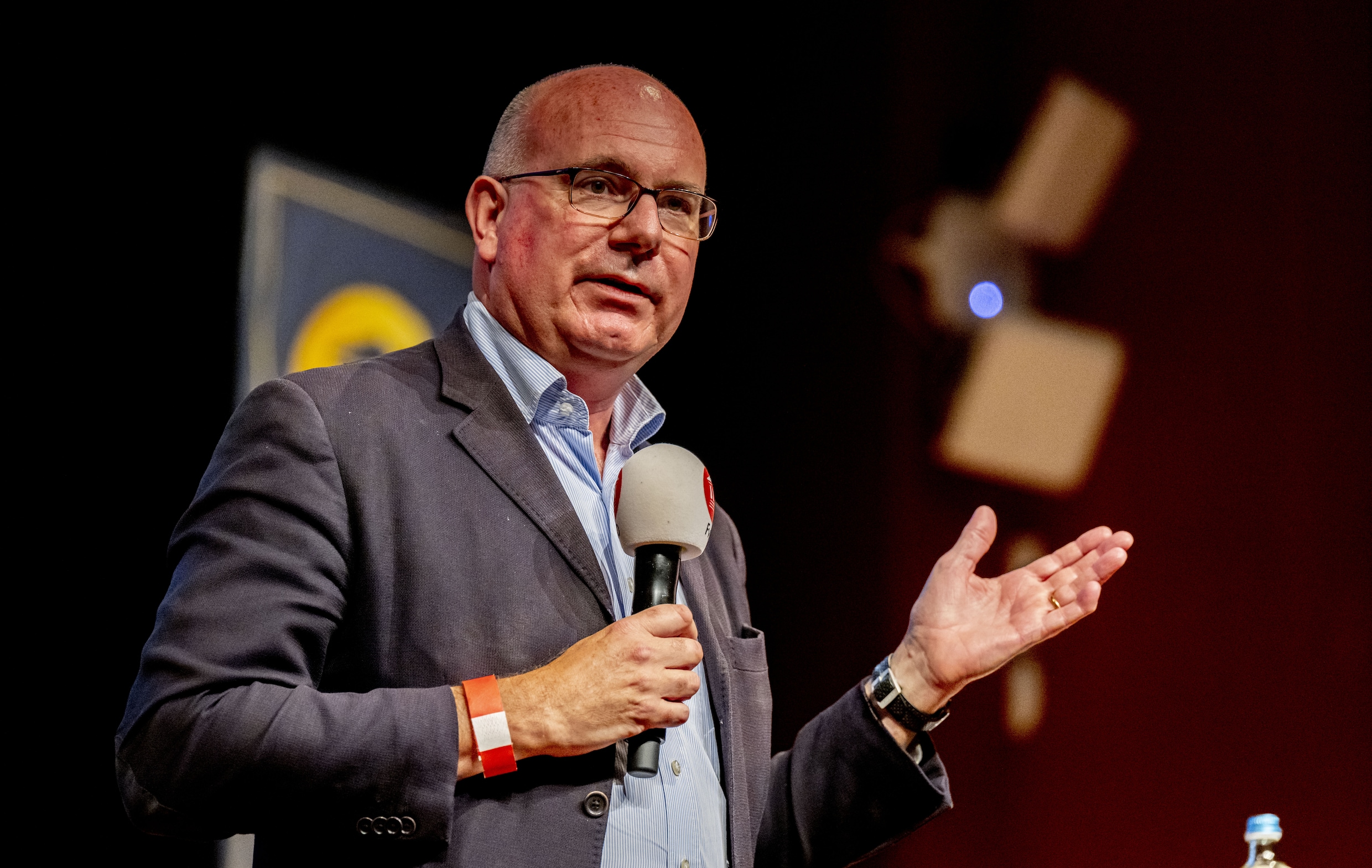
That’s very interesting. But if we’re speaking of war, we inevitably come to NATO. Isn’t the war in Ukraine also a question about NATO’s relevance or even survival? Recent coverage — including in the Financial Times — hints at the dissolution of the transatlantic alliance. How do you assess NATO at this point?
I believe NATO is effectively over.
First, militarily, NATO has failed in Ukraine. Its supposed objectives — halting the Russian advance, or even precipitating the collapse of the Russian state — have utterly failed. Not only has Russia not collapsed, it has emerged militarily stronger.
Russia now outproduces the entire NATO alliance in artillery shells by a factor of three or four. It possesses hypersonic missile capabilities that NATO doesn’t, despite years of effort. Most critically, Russia has the manpower — something NATO simply doesn’t have.
As retired General Keith Kellogg pointed out recently, Russia now has more soldiers in Ukraine than the United States has in its entire active-duty army. Around half a million Russian troops are deployed there — more than the total of active U.S. forces, which number around 400,000 to 450,000.
NATO, by contrast, has never fought a proper, classical war. Its record consists of air campaigns — in Libya, in Yugoslavia — or failed counterinsurgencies, as in Afghanistan. It has no experience or capacity for high-intensity, state-on-state warfare.
Of course, Russia has paid a terrible price. Tens of thousands of its soldiers — perhaps 150,000 — have been killed, with hundreds of thousands wounded. The war has been costly. But Russia has not been defeated. On the contrary, it’s become more resilient.
Second, politically, NATO is unraveling. The return of Donald Trump only accelerates this. While his administration may be chaotic and unpredictable, one thing is clear: he does not believe in NATO. His inner circle, including people like Keith Kellogg and others, have indicated there will be no NATO troops in Ukraine under a Trump presidency.
So while the formal structures of NATO remain intact, the political alliance — the shared will — is gone. Many European officials acknowledge this privately. The alliance, in its historical sense, no longer exists.
Third — and this may be most important — NATO is collapsing morally. This is not directly about Russia, but about the West’s policy on Israel and Gaza. The West’s response to that crisis has revealed a level of hypocrisy that is simply indefensible.
The entire world sees this double standard — lectures on human rights and rules-based order from countries arming Israel in a devastating military campaign. NATO may not be directly involved in Gaza, but it is made up of the same “collective West” that supports or tolerates this policy.
Moral authority matters. Integrity, credibility, and trust still count in global affairs. Maybe not as much as we’d like, but they do count — and in moments like these, they count a lot. The West has squandered a great deal of moral capital. And NATO, as its military arm, is tainted by association.
Speaking from a moral standpoint, would you say that NATO’s moral decline began with the bombing of Serbia and Montenegro?
Yes, I do think so. Objectively, that’s when it started. But the world didn’t really perceive it that way. The global consciousness never internalized the significance of the Kosovo War. It’s largely forgotten—overshadowed by other events like the Iraq War, which had a far greater impact on America’s international reputation.
So while I agree entirely with the premise of your question—yes, the bombing of Yugoslavia marked the beginning of NATO’s moral erosion—it’s important to distinguish between moral reality and global perception. The Iraq War is remembered and criticized widely; Yugoslavia, almost not at all.
That said, recent events—especially Israel’s campaign in Gaza—have, in terms of public perception, had a much more profound effect. I interviewed an Iranian political scientist recently who argued that until a year and a half ago, global opinion on Israel ranged from indifferent to mildly positive. But the Gaza campaign has fundamentally shifted that. I believe he’s right. It certainly changed my own perspective.
What I meant earlier, when I said that integrity matters in politics, is this: international influence isn’t derived solely from hard power. Yes, power matters—but so does authority. If the world sees you as hypocritical or dishonest, your influence diminishes.
One timely issue is the presence of European leaders—like President Fico and President Vučić—in Moscow for Victory Day. Some claim this contradicts European values. What’s your take?
Of course it doesn’t contradict European values. In fact, in 2010, even the British Royal Guards marched in the Red Square parade. Ukrainian soldiers did too. So did the Polish Army. That was for the 65th anniversary of the end of the Second World War.
So no, it’s not a violation of European principles for leaders like Fico and Vučić to stand on the podium this year. And let’s not forget—this time there were no Slovak or Serbian troops marching, just leaders attending the ceremony.
The outrage is absurd. It’s rooted in a broader erosion of historical memory. The role of the Soviet Union in defeating Nazi Germany has been systematically obscured for decades. Sadly, few now understand that the Second World War was, in essence, a titanic struggle between Germany and the Soviet Union.
You mentioned Romania earlier, and I’d like to return to that. How would you assess the the rise of Mr. George Simion? What are your expectations, and how do you interpret the EU establishment’s response? Would you say it’s revealing of their attitude toward democracy?
Absolutely—it’s extremely revealing, and deeply troubling. I care about Romania personally; I have family connections there and visited several times under Ceaușescu and many more after communism ended. Romanians suffered terribly under that regime—perhaps more than any other country in the Eastern Bloc.
Now, I haven’t been to Romania in a few years, so I speak cautiously. But two things stand out. First, I’ve seen Simion’s comments on NATO, and they’re somewhat ambiguous. He praises Giorgia Meloni—who is staunchly Atlanticist—so I do wonder whether he was allowed to rise because of his relatively soft stance on America. Whether he will truly be a sovereignist remains to be seen.
We’re witnessing a rather intriguing situation in Germany. There was that failed first-round attempt to elect Mr. Merz as Chancellor, and of course, the recent designation of the AfD as an extremist entity within the political system. How would you interpret this? It seems that every time efforts are made to marginalize or ban the AfD, its support actually increases.
I’m not entirely convinced by that narrative. In fact, I observed quite the opposite. Following the report designating the AfD as extremist, their poll numbers actually declined somewhat. Many voters began to question the utility of supporting a party that appears to have no pathway to real power. I must say, I’m rather pessimistic about Germany’s trajectory.
Well, of course, one should never say “never” in politics — circumstances can and do change. But over the past two decades, Germany has accumulated several deep and structural vulnerabilities. Much attention has been paid to the energy crisis, Nord Stream, and so forth, but the real problems began earlier.
The process arguably began under Chancellor Schröder. He dismantled the system of Rheinland capitalism — the very backbone of the post-war German economic miracle. By removing taxes on the sale of shares, Schröder incentivized the trading of corporate equity, which until then had largely been held by German banks in long-term arrangements. This opened the door for American investment funds to take over major German companies. That was the beginning of the end for the Rhenish model.
Then came Angela Merkel’s Energiewende — the phase-out of nuclear energy — a catastrophic decision even before the Nord Stream sabotage. Now, compounded by war-driven energy policies and crippling prices, German industry is being effectively starved of affordable energy. These economic missteps sit atop an even more profound ideological crisis.
Germany is, in many ways, the vanguard of post-national liberalism. And once a society has undergone such intense ideological conditioning, it becomes very difficult to reverse course. The rise of the AfD, in my view, is symptomatic — a reaction, yes, but still a symptom.
One could argue, paradoxically, that East Germany was “decolonized” in 1990, but West Germany was not. Today, the East-West divide remains as stark as ever. West Germany remains hegemonic — economically powerful and ideologically aligned with American interests. Meanwhile, East Germany is economically desolate, sparsely populated, and lacking in industrial infrastructure. It is, bluntly, an economic desert.
These are systemic, structural issues. I don’t believe the AfD achieving 20–25% of the vote will alter the fundamentals. Look at France: they’ve had a similar containment policy — le cordon sanitaire — for over fifty years, ever since the rise of the Front National in the 1970s. It has largely succeeded in keeping that party from attaining power. In Germany, this policy is known as the Brandmauer, and it may well achieve the same outcome.
And let’s not forget: Mr. Merz may have lost the first round, but he ultimately prevailed in the second and now serves as Chancellor. He is a former BlackRock executive, firmly entrenched in the Atlanticist and globalist milieu. The AfD may shout as loudly as it likes, but I doubt it will make a meaningful difference within the existing power architecture.
Let’s shift now to the Netherlands. You’re actively engaged in Dutch politics through your work with Forum for Democracy and Mr. Thierry Baudet. Could you provide some context on the current political process?
That’s precisely my role — to help communicate to an international audience what Thierry and the other MPs are doing. Just to be clear, I don’t speak on behalf of Forum for Democracy. Everything I’ve said so far reflects my own views as a university lecturer and political commentator.
FvD positions itself as a constructive opposition. They align with the PVV (Party for Freedom) on several core issues, particularly immigration. But there are also points of divergence. FvD continues to scrutinize where they believe the PVV has failed to deliver — for example, on large-scale immigration, housing policies, and the lack of derogation from EU asylum requirements.
In essence, FvD hopes the PVV will succeed in implementing meaningful reforms, but it remains vigilant in pointing out where campaign promises aren’t being fulfilled — especially on key issues like immigration and national sovereignty.

As we near the conclusion of our interview, I have just a couple more questions. One of them is particularly intriguing. It concerns the current landscape of European conservatism. Despite some notable victories—of varying scale—it still feels like something fundamental is missing. There’s no real conservative “International,” so to speak. What, in your view, should political parties, intellectuals, and think tanks be doing? Conservatives today often feel like dissidents within Europe. So how do we connect? How do we create these spaces of truth? How do we challenge this pervasive left-liberal hegemony? Something crucial seems absent. Can you help us understand what that is?
That’s exactly what we’re trying to address at Forum for Democracy International. Our mission is, indeed, to serve as a kind of hub—a nucleus, if you will—for a conservative international. Our slogan is “Fighting Globalism Worldwide.” We pursue this through weekly broadcasts, our website, our X (formerly Twitter) feed, and various other channels. The goal is to connect like-minded people around the world—sharing perspectives, experiences, and strategies.
I think your question hits a very important nerve. You’re right: we are up against an entrenched cultural hegemony rooted in the liberal left. So, what’s missing? That’s easy to answer, and Thierry Baudet speaks particularly well on this.
Political change does not originate in politics. True political transformations—like those seen during the French Revolution—arise from metapolitics: from clubs, cultural associations, economic enterprises, the arts, media, and other domains outside traditional political institutions. Thierry is passionate about this—he believes conservatives are making a strategic error in thinking that electoral victory alone is the path forward.
Yes, political office matters—it provides visibility, platforms, and legitimacy. But real change doesn’t come merely from holding office. You can win elections and still remain powerless. The system remains intact. In many cases, we see people holding ministerial titles without actual influence. They are in office, but not in power. That’s the fundamental dilemma.
Exactly—that’s such an important insight. It’s almost a Gramscian framework in reverse.
Precisely. And yet here’s the paradox: to change the cultural terrain, we still need resources—money, infrastructure, influence. So what do we do in the meantime?
One example is what Thierry is doing with FVD. He’s launched a food delivery service—direct from farmers to consumers. The food is of very high quality, but more importantly, the project fosters economic independence and community building. He’s also developed a “Forum App,” which allows people across the Netherlands to find others who support the movement—whether they’re business owners, selling a car or house, seeking a nanny, or simply networking.
This creates a metapolitical ecosystem—ultimately, a parallel society. That’s the strategy: to build something outside the system that can eventually rival or replace it.
That is truly inspiring – a practical model of a conservative civil society in action.
Another related question concerns the academic world. In many cases, the academic community has become an ideological stronghold of the left. Even as the left loses institutional power in other areas, it seems to be entrenching itself more deeply within universities. Would you agree that academia has become a battleground for ideological extremism? We’ve seen recent efforts by President Trump to challenge this — such as his letter to Harvard. What is your view on this?
Well, I speak from some experience—I’m a university lecturer myself. Fortunately, I teach at a university that upholds genuine academic freedom. It’s in western France, and we offer English-language political science courses, even for students who don’t speak French—so you’re welcome to come study there!
That said, the problem is vast—truly difficult to overstate. I’m 60 now. When I was at Oxford in the 1980s, the institution was already overwhelmingly left-wing. I recall vividly how, even during Thatcher’s premiership, the university milieu was completely opposed to her.
And yes, while I don’t agree with Trump’s stance on some aspects—particularly the suppression of pro-Palestinian student voices—I do agree very strongly with one of his key initiatives: cutting federal funding to these ideological strongholds. That is absolutely essential.
This is also true of NGOs. These institutions are often kept alive by government or quasi-government funding. Remove the funding—and much of the ideological machinery collapses. There’s almost a Marxist logic to it: if you remove the economic base of a class, its cultural superstructure cannot sustain itself. You’re absolutely right: even if liberals lose political power, they still hold on to cultural power. And that’s the link we must break.
That’s a very sharp and honest diagnosis. Thank you. Now, just one final question, if I may.
Could I ask you to share your perspective on Serbia? Serbia remains a unique case—culturally European, politically autonomous, historically tied both to East and West. What role do you see for Serbia in today’s increasingly divided and ideologized Europe?
I think Serbia’s independence gives it a special and valuable role. Hungary is often cited as the model—its national independence, its distinct profile within the EU. But Serbia is even more independent, since it’s not within the EU or NATO. That gives it a unique flexibility.
My hope is that this independence will yield concrete benefits. For example, President Xi Jinping’s visit to Serbia—leader of the world’s most powerful country—is not a small thing. It underscores Serbia’s geopolitical relevance.
As we discussed earlier, the moral credibility of the West is in deep decline. And in such a context, smaller countries like Serbia can carve out a dignified path. Independence, in this case, means you’re not anyone’s vassal.
By contrast, the leaders of most large EU nations are no longer truly autonomous—they serve other interests, often those of the American deep state. That’s corrosive. People see it, and it undermines their legitimacy.
So yes, Serbia is relatively small and not among the wealthiest, but it has several cards to play. Trump famously told Zelensky he had “no cards.” Serbia does. It has a complex identity—clearly European, yet with deep historical and cultural ties to the East.
Let’s hope that, as NATO weakens and the European institutions face crises of legitimacy, there will be more breathing room for sovereign states like Serbia to flourish.
